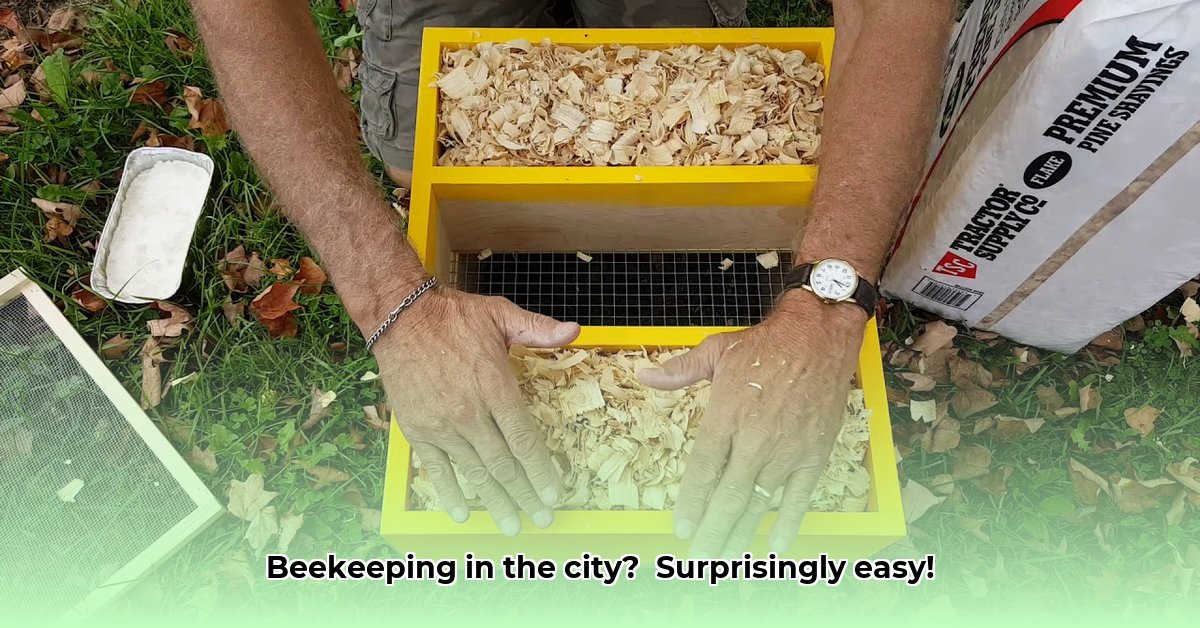
Tractor Supply Beehive: Your Urban Beekeeping Adventure Starts Here
Dreaming of fresh, local honey and contributing to a healthier planet? Urban beekeeping might be your perfect next project! It’s surprisingly achievable, especially with the help of Tractor Supply. Let’s explore how to start your very own sustainable urban apiary. Did you know that urban bee populations can actually be healthier than rural ones, due to less exposure to pesticides? For more information on sustainable beekeeping practices, check out this helpful resource on cedar shavings.
Getting Started with Your Tractor Supply Beehive
First, you’ll need the right equipment. A Tractor Supply beehive kit is an excellent starting point, often including everything needed. These kits typically contain:
- Hive Body: The main living space for your bees (their apartment building!).
- Frames: Internal wooden structures holding the honeycomb foundation (pre-cut building blocks).
- Foundation: Sheets of beeswax (or plastic) within frames, giving bees a head start in honeycomb construction.
- Inner Cover: Regulates hive temperature and humidity (their air conditioning!).
- Outer Cover: Protective roof shielding the hive from the elements.
- Bottom Board: Hive floor providing ventilation and a landing platform.
Before purchasing, visit your local Tractor Supply to see available kits. Larger hives mean potentially more honey but also more work managing a larger colony.
Setting Up Your New Home for Bees: Hive Placement
Hive placement is crucial. Bees need the right conditions to thrive.
- Sunshine: At least six hours of direct sunlight daily. Bees are solar-powered!
- Shelter from the Wind: Protection from harsh winds is essential.
- Water Source: Easy access to water; a shallow dish with pebbles works well.
Ensure the hive is level and on a stable base for proper drainage and to prevent tilting. A well-placed hive is the cornerstone of successful beekeeping. Have you considered the impact of nearby vegetation on your bees' foraging range?
Getting Your Bees: Package Bees vs. Nucs
Now for the exciting part – acquiring your bees! Two main options exist:
- Package Bees: A queen and thousands of worker bees in a screened cage (a brand-new colony).
- Nucs (Nucleus Colonies): Smaller, established colonies with a laying queen, brood, and honey stores (a fully functioning, smaller colony). Many beginners prefer nucs for their ease of management.
Check Tractor Supply for availability. Introducing bees requires careful attention to detail; always follow the provided instructions.
Keeping Your Bees Happy: Regular Hive Maintenance
Beekeeping requires regular maintenance; think of it as preventative care for your bee family.
| Task | Frequency | Important Notes |
|---|---|---|
| Hive Inspection | Every 7-10 days (spring/summer) | Check for diseases, pests, queen health, and hive space needs. |
| Honey Harvest | Late summer/fall | Carefully remove honey, leaving enough for the bees to survive winter. |
| Feeding (if needed) | Fall/winter | Supplement their food if needed to help them through the cold months. |
Always wear protective gear during hive inspections. Did you know that regular hive inspections can increase honey yield by up to 15%?
Troubleshoot and Overcome Common Challenges
Bee colonies face challenges. Swarming is natural, but manageable by ensuring sufficient hive space. Pests like Varroa mites require proactive treatment. Early problem detection is crucial. Consult your local beekeeping association or Tractor Supply staff for advice.
The Sweet Reward: Harvesting Your Honey
Harvesting your own honey is incredibly rewarding! You'll need a honey extractor (available at Tractor Supply), which spins honey from the honeycomb frames. Maintain good hygiene to prevent spoilage. Strain the honey to remove impurities and enjoy the fruits of your labor! How does the thought of your own pure, fresh honey make you feel?
Conclusion
Start your beekeeping journey today! Visit your local Tractor Supply, gather your supplies, and build your sustainable urban apiary. It's a rewarding experience that contributes to the environment and provides a delicious harvest. You'll be amazed at what you can achieve! Remember, urban beekeeping isn't just about honey; it's about contributing to a healthier ecosystem.